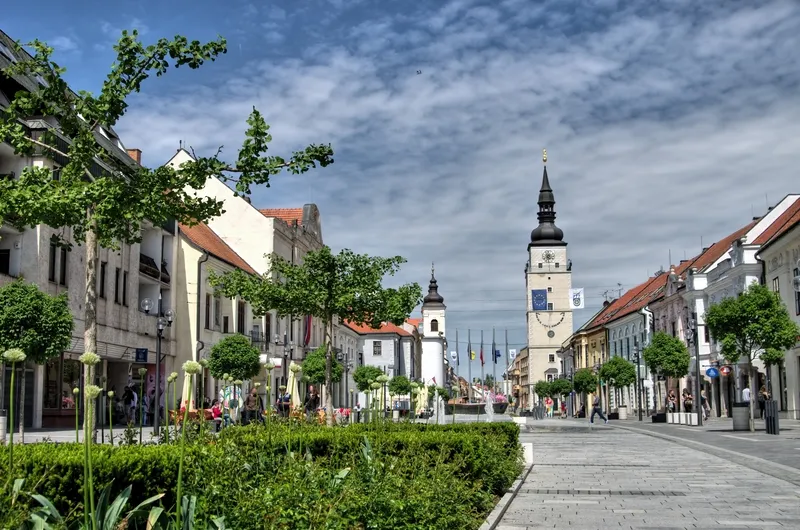Microwave broadband specialise Cambridge Broadband Networks (CBNL) and transmissions systems integrator VSAT System are to deliver a new data transmission platform for intelligent transport systems (ITS) in Rzeszow, Poland to enhance smart city capabilities in the city.
The ITS provides a single integrated communication system between public transport vehicles, traffic management systems and the public, making it quicker, easier and safer to move around the city.
At its heart is CBNL’s carrier-grade
January 15, 2016
Read time: 2 mins
Microwave broadband specialise Cambridge Broadband Networks (CBNL) and transmissions systems integrator VSAT System are to deliver a new data transmission platform for intelligent transport systems (ITS) in Rzeszow, Poland to enhance smart city capabilities in the city.
The ITS provides a single integrated communication system between public transport vehicles, traffic management systems and the public, making it quicker, easier and safer to move around the city.
At its heart is CBNL’s carrier-grade VectaStar PMP microwave platform, which provides the wireless infrastructure to connect key elements of the network, including: traffic light management and CCTV feeds from 50 intersections; public transportation passenger information and ticketing offices/machines; backup links for the city Crisis Headquarters; and a dynamic truck weighting system.
According to the city authorities, integrating communications to a single control centre allows traffic to be easily monitored and controlled and enables congestion to be quickly resolved, creating highly reliable public transportation services.
CBNL said the business case presented by VectaStar provided a wireless solution that had the optimum balance of performance and cost efficiency to realise Rzeszow’s smart city vision. It claims total cost of ownership savings of up to 50 per cent compared to fibre or point-to-point microwave.
Patrick Dravet, VP sales Europe at CBNL said, “VectaStar is ideally suited to smart city deployments such as this thanks to its optimum balance of high capacity, cost efficiency and flexibility. We look forward to continuing our partnership and bringing the benefits of our new 600Mb/s solution to the city in the future.”
"We had tremendous success working together when introducing the first smart city capabilities to Rzeszow, enabling us to deliver advanced services and reduce our telecommunication operating costs by more than 60 percent,” said Leslaw Bandur, director of IT for the City of Rzeszow.
The ITS provides a single integrated communication system between public transport vehicles, traffic management systems and the public, making it quicker, easier and safer to move around the city.
At its heart is CBNL’s carrier-grade VectaStar PMP microwave platform, which provides the wireless infrastructure to connect key elements of the network, including: traffic light management and CCTV feeds from 50 intersections; public transportation passenger information and ticketing offices/machines; backup links for the city Crisis Headquarters; and a dynamic truck weighting system.
According to the city authorities, integrating communications to a single control centre allows traffic to be easily monitored and controlled and enables congestion to be quickly resolved, creating highly reliable public transportation services.
CBNL said the business case presented by VectaStar provided a wireless solution that had the optimum balance of performance and cost efficiency to realise Rzeszow’s smart city vision. It claims total cost of ownership savings of up to 50 per cent compared to fibre or point-to-point microwave.
Patrick Dravet, VP sales Europe at CBNL said, “VectaStar is ideally suited to smart city deployments such as this thanks to its optimum balance of high capacity, cost efficiency and flexibility. We look forward to continuing our partnership and bringing the benefits of our new 600Mb/s solution to the city in the future.”
"We had tremendous success working together when introducing the first smart city capabilities to Rzeszow, enabling us to deliver advanced services and reduce our telecommunication operating costs by more than 60 percent,” said Leslaw Bandur, director of IT for the City of Rzeszow.









